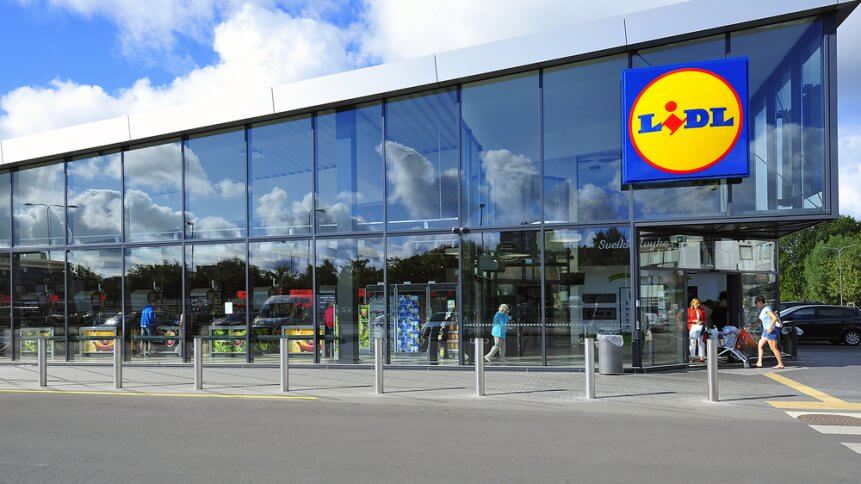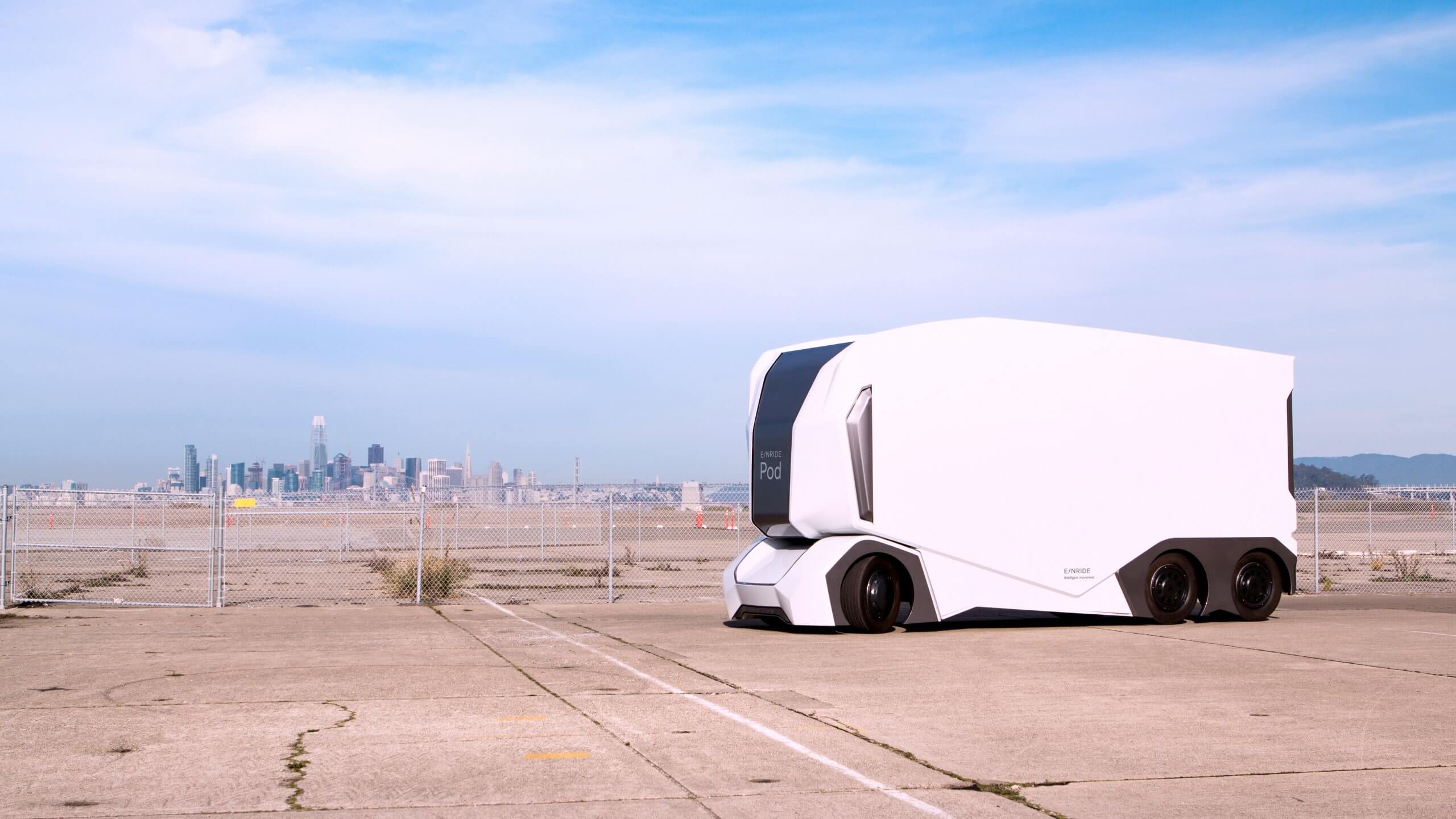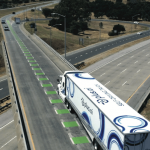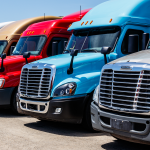Lidl Sweden – We’re bringing electric trucks to the supply chain

- “Our first goal on that journey is to be completely free from fossil fuels by 2025,” Lidl Sweden told us
- To do that, Lidl has joined arms with Einride to integrate electric trucks in the supply chain
- Freight electrification has the potential to bring down emissions by 90 percent
Opening its doors in Ludwigshafen, Germany with only three employees and about 500 products, Lidl’s humble beginnings were the start of what would eventually become a global supermarket chain.
Lidl’s expansion across Europe and eventually to the United States, where it set up headquarters in 2015, has been made possible by, and continues to initiate, innovation and progress.
The supermarket has built a brand on its ability to offer quality products at affordable prices, so while it clearly knows a thing or two about supply chain optimization, it now wants to ensure that the logistics side of the business is environmentally conscious as well. Earlier this year, Lidl announced that they would be introducing the first electric trucks in their supply chain as they attempt to cultivate and sustain a zero-emissions transport network.
In a partnership that began in 2017, Lidl and the Swedish electric and self-driving vehicle company Einride are aiming to electrify and automate deliveries to the supermarket’s locations across Sweden. This model, along with its lessons and successes, will soon be expanded to other operations in Sweden, Europe, and eventually, to the US.
The project aligns with Lidl Sweden’s vision of “setting new standards to build climate neutral stores, to in this case, reducing emissions in the supply chain to the stores.”
Carl Ceder, Logistics Manager of Lidl Sweden, told TechHQ, “Our first goal on that journey is to be completely free from fossil fuels by 2025, and it’s in that context our collaboration with Einride will come to fruition.
“Together, our goal is to raise the bar for electrified transportation and to show that it’s now possible to implement a large-scale electrical fleet.”
On the road to greener deliveries
The partnership will see the regular transport routes between Lidl’s central warehouse and their stores in Stockholm shift to deliveries that are powered by electric trucks this autumn. Electrification is the short term plan, with automation said to be coming in the next phase.
Ceder explained that the current processes both in their warehouses and stores will go through several changes, including how they load and unload their vehicles, with increased safety checks for the vehicles.
In the bigger picture, the introduction of next-gen transportation technology will not only transform daily supply chain routines, but also the finer details of how this tech is implemented. Maintenance and sustainability of new transportation processes are as vital to the new green initiative’s success as the timeliness of the deliveries themselves.

“Electrical autonomous trucks are such a disruptive technology that we completely need to revise the current logic for transport planning and execution,” Ceder said.
One of the concepts Ceder shared with TechHQ looks at the possibility of electric trucks embarking on 1,000 km tours and charging their massive batteries en route. Utilizing the latest developments in battery technology, there’s a genuine possibility of seeing fleets of driverless trucks hitting the road while also being able to travel longer routes than before.
Sharing his insights on the prospects and mechanics of electric trucks, CEO of Einride, Robert Falck, stated:
“Electric trucks excel at replacing diesel vehicles on short and intermediate routes while the battery technology is being developed for longer-haul transport.”
Einride had previously worked with Lidl to fulfill its goals of more sustainable transportation with the use of their Freight Mobility Platform.
The platform is an intelligent transport planning and execution engine. According to Falck, “it gathers data on the entire network and can provide specific recommendations [on the development and expansion of electrification.]”
This includes optimizing charging and planning more efficient routes while taking into account the available charging infrastructure. In terms of streamlining the supply chain, the platform then is able to calculate and recommend the best ways to optimize loading and unloading schedules.
Sustainable freight is the future
This transition towards a more green technology, like the widespread use of electric vehicles, paves the way for more sustainable approaches to move into the mainstream. Lidl’s innovation in making a more environmentally-friendly supply chain is leading the industry.
“Electrification, digitalization, and automatization of transports are on the agenda and I believe that if we are to reap the benefits of that technology, now is the time to start working with it,” Ceder told us.
At the same time, the German retail giant highlighted that change is not limited to the positive impacts brought about by solutions, but with the ripple effect their policies will have on the wider supply chain: Leaders must understand and unravel the disruptive elements that will arise in daily operations.
The Logistics Manager of Lidl Sweden said, “for me, it’s equally important to understand the technology and the ramifications that it will have on logistics, and perhaps even to be able to influence it.”
Falck shared that freight electrification has the potential to reduce fossil fuel emissions by 90 percent, compared to current levels in the industry. This accounts for more than seven percent of emissions globally.
Meanwhile, the mass imposition of lockdowns globally has pushed carbon emissions to an all-time low and reinforced the reality that transportation is a major contributor to air pollution.
As economies are ramping up efforts to revive, incorporating sustainability in their supply chain decisions is essential to ensure carbon emissions remain low.
Ryan Purcell, Director of Global Impact at Llamasoft, remarked: “Once the crisis begins to subside, we must find and build alternative methods to achieve sustainability.
“I believe the supply chain industry can lead the way.”










